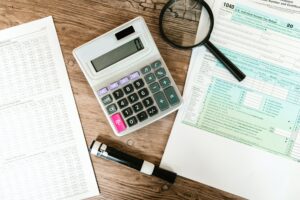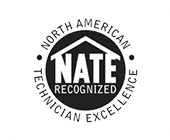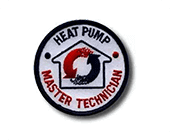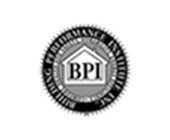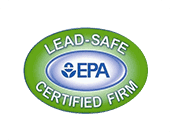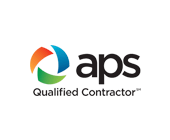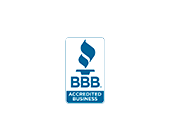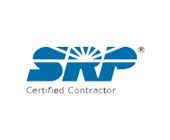The newly passed Inflation Reduction Act provides incentives that may help with the upfront expenses of switching to greener appliances and decarbonizing a home. This simple but effective approach to reducing environmental impact can also lead to short and long-term cost reductions.
The new law includes rebates to help individuals with modest incomes, including a refund covering up to half the cost of certain energy improvements for families with incomes between 80% and 150% of the local median income, and a full reimbursement for those with incomes of 80% or less of the median income, subject to a certain limit.
These incentives have the potential to transform the economy and encourage widespread adoption of energy-efficient practices. Let’s understand these benefits in detail.
What is the Inflation Reduction Act?
The Inflation Reduction Act (IRA) is a significant measure that is aimed at restricting inflation by cutting the deficit and tackling some of the most serious concerns that the United States is experiencing in terms of climate management and health care.
The several-hundred billion climate and health care act was introduced in August 2022. It covers a broad variety of concerns, ranging from the high cost of prescription pharmaceuticals to energy efficiency and electric transportation.
When homeowners renovate their homes to be more environmentally friendly, they may be eligible for tax credits for clean energy as well as other applicable tax incentives, which are included in the law.
What are the benefits of the Inflation Reduction Act?
The Inflation Reduction Act aims to introduce various options to homeowners to help them save money and increase the energy efficiency of their homes. Two primary initiatives under the act are the High Efficiency Electric Home Rebate Program (HEEHRP) and the Energy Efficient Home Improvement Tax Credit (25C). These programs are focused on improving the heating, ventilation, and air conditioning systems in homes.
Colloquially, these programs are also commonly referred to as Inflation Reduction Act HVAC program, Inflation reduction act heat pump tax credits or Inflation reduction act furnace rebate program.
Program one: High Efficiency Electric Home Rebate Program (or Inflation Reduction Act Heat Pumps Rebate program)
The High Efficiency Electric Home Rebate Program (HEEHRP) is a program that allows states to allow up to $14000 in consumer refunds to families to help them purchase heat pumps and other energy-saving home equipment. HEEHRP is the official name for the casually called Inflation reduction act heat pumps rebate program. This can result in qualified families saving a minimum of $350 annually on their utility costs.
It will be the state’s job to oversee refunds and financing, not HVAC companies or retailers. The start date and amount of money available for the program will differ by state. Homeowners should consult their tax expert for updates on any upcoming state announcements.
Under the HEEHRP, rebates for HVAC systems are available, up to a maximum of $14000 per home. This includes up to $8000 for the installation of heat pumps that qualify for the ENERGY STAR program, up to $4000 for electric panel improvements, up to $1600 for weather-proofing and insulating, and up to $2500 for improvements to the electrical wiring in your home.
The discount amount and the eligibility for the program is based on the house income. For example, families with incomes less than 80% of the local median income may be eligible for a 100% refund of the appliance price, while families with incomes between 80% and 150% of the median income may be eligible for a 50% refund.
The program provides a total of $4.5 billion to states for funding residential energy efficiency initiatives.
Program two: Energy Efficient Home Improvement Tax Credit
The program is a federal tax credit available to households that purchase and install high-efficiency appliances. The credit has been extended until 2022 and is as much as $500 for certain types of appliances like efficient ACs, heat pumps, furnaces, and boilers.
The new version of the credit, which will take effect beginning 2023 and be available until 2032, increases the maximum allowable tax credits for high-performing equipment.
For example, you may be able to get as much as $600 for a qualifying air conditioner and up to $800 for a gas-based furnace, with a maximum of $1200 each year. A maximum rebate of $2000 is also available for the purchase of eligible heat pumps, boilers or heat pump-based water heaters.
Who is eligible for these programs?
Provided that the modifications were made to a residential property and not a commercial one, you are eligible. You are eligible even if you are a renter or if you live in a building that houses many families. Tenants can encourage their landlords to benefit from any available incentives.
How to make the most out of these programs?
Start investing in energy efficient systems
Investing in household appliances that are more energy-efficient is one choice available to homeowners for availing such schemes. Because these appliances are intended to use less energy and water than conventional appliances, consumers may see considerable savings on their monthly utility costs as a consequence of their usage.
The Energy Star label, which verifies that the product satisfies specific requirements relating to energy efficiency, is often affixed to environmentally friendly home equipment.
Make your existing systems energy-efficient
Homeowners also have the option of making renovations to their houses that will lead to an increase in the energy efficiency of their dwellings.
Among these measures are the installation of energy-efficient windows, the sealing of air leaks around doors and windows, the addition of insulation to walls and attics, and so on. In the winter, these enhancements can help keep your house warmer, and in the summer, they can help keep your home cooler, which may result in reduced energy expenses.
Along with these steps, it’s also important to maintain the HVAC systems you already have in good shape to get the most out of them.
Will HVAC prices go down in 2023?
Probably not. There is a prediction of large price hikes in the HVAC industry in 2023. This rise may be attributed to the following factors:
- In order to attain a high-efficiency rating in systems, the components of the HVAC equipment will be required to perform at a higher level. This is good news for homeowners, since, in general, these components will naturally be made with better quality materials and last for longer periods of time.
- In order to achieve the desired level of efficiency, the domestic HVAC coil and the exterior air conditioner coil will both be physically expanded. This results in a greater demand for copper, aluminum, and steel, which drives up the cost.
- Since the units will be physically bigger, more effort will be required to handle the equipment, and a smaller number of units will be transported in a rail car or tractor-trailer. Costs associated with both handling and transportation will go up.
- In order to attain a greater efficiency rating, fans and the top that covers fans in air conditioners will be redesigned. The bigger units incur a greater overall cost due to the design of the product.
Unlock your savings with Autumn Air
The recently enacted Inflation Reduction Act offers incentives that can potentially assist with the up-front costs of transitioning to environmentally friendly equipment and decarbonizing a house. These incentives have the ability to completely reshape the economy and stimulate broad adoption of behaviors that are more energy efficient.
Given these developments, there is no better time than now to investigate the possibility of making energy-efficient improvements to your house, and for this, Autumn Air is an excellent choice, as we are committed to providing the best value to our customers.
Autumn Air provides a number of choices that meet the requirements to get the tax credits and other incentives.
Simply click here to schedule an appointment or dial (602) 266-5247 to learn how you can save on HVAC installations and maintenance, as well as how to take advantage of the most recent rebates.


